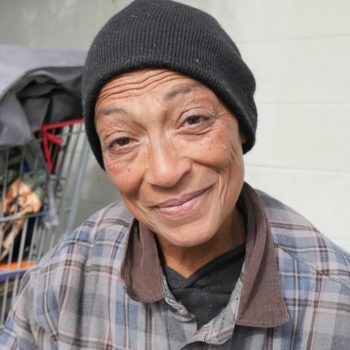A Look at the Party’s Position and the Push for Criminalization to Address the Homelessness Crisis
We are a nation divided. Given the unprecedented state of the world, politics have never been more polarizing. Yet, even in the face of such disunity, there is one issue Republicans, Democrats, and even Independent leaders agree on: we’re all dropping the ball when it comes to homelessness.
By all estimated accounts, homelessness is on the rise and has been increasing for years. While dirty looks have been exchanged across political party lines and accusatory fingers have been extended, few viable solutions have been introduced, let alone implemented.
Earlier this year, the Biden administration successfully housed 40,000 houseless veterans to the tune of a big win, only to follow up by evicting countless encampment residents blocks away from the White House lawn, a grave loss, to say the least.
In terms of solving homelessness on a large scale, the dance continues. It is one step forward followed by at least two steps back.
According to ABC10 News, the next party to take on this ill-fated tango might just be the Republican Party.
In 2022, right-leaning representatives proposed a package consisting of 16 new bills to address homelessness. The question is, will these legislators address homelessness with actual addresses, or will we see more smoke in the mirrors as homelessness gets shuffled from street corners to prison cells to sofas, an ever-present problem even when concealed from sight?
Act on Homelessness Overview: What Is and Is Not Included in the Policy
The Republican-led policy proposal Act on Homelessness was drafted in 2022 by the assembly and Senate Republicans. Some of these prospective pieces of the legislature have already been taken off the table.
Even so, the proposal is indicative of the overall approach Republicans wish to take regarding homelessness. It also shows where each party’s views connect and where they differ.
Much of the Act proposal consists of bills addressing secondary causes of homelessness, such as mental health and addiction. It should be duly noted that the policy does nothing to address the following:
- Lack of affordable housing
- Unemployment (except where this applies to youth populations who are aging out of the foster care system)
- Poverty
- Low wages
*This distinction is important because the aforementioned items are the top four leading causes of homelessness. As you might imagine, a policy that deals with homelessness but fails to rectify or even acknowledge the top four leading causes of homelessness is flawed upon arrival.
That doesn’t mean it is completely unavailing.
The act does present a few novel approaches, such as GROVE – SB 1484, a bill that incentivizes private sector employers to hire youths aging out of the foster care system to prevent future homelessness for this vulnerable population. Another example of a novel proposal is a call for audits and accountability concerning spending in the homeless sector.
Republicans Seek to Monitor Homeless Spending with Publicly Available Records
Conservative lawmakers in California and other regions across the nation acknowledge the bipartisan failures of the homeless sector. Now they claim they want to audit spending.
Earlier this year, Senate Bill 1353, which would have enforced tracking homeless funding data, died in the Senate. However, a joint legislative committee approved a bipartisan-backed audit on homeless funding in the City of San Jose in March 2023.
There is some agreement on this issue across party lines. For example, Democratic Assemblywoman Luz Rivas presented Bill AB 799, known as the Homelessness Accountability and Results Act, in February of this year. In her own words, she did so “to ensure money is tied to successful programs that have tangible results.”
Likewise, Republican representatives have expressed a desire to measure not just the amount of funding but also the efficacy of each funded program. This bipartisan decision comes on the heels of the pandemic when tens of billions of dollars were allocated to rent relief for vulnerable Americans at risk of homelessness. Much of that money has seemingly dwindled out of existence.
Forbes reporters and other investigative sources have posed serious questions about where all that money went. Those questions remain largely unanswered at present.
Given the mismanagement of funding and the fact that homelessness continues to increase despite large sums of money being designated toward solutions, this request to audit spending is a step in the right direction.
Tragically though, as has been the tradition, this step forward has already been followed by two steps back as the Republican Party pressures government leaders to increase criminalization. Incidentally, it is proven that criminalization is the least cost-effective approach to homelessness on record.
After Chastising Democrats for Ineffective, Costly Solutions to Homelessness, Republicans Double Down on the Most Expensive and Least Effective Approach to the Crisis of All – Criminalization
As it turns out, these cries to audit spending are a poorly veiled attempt to enforce harmful homeless criminalization laws by penalizing states and city governments that don’t enforce them.
All across the country, from Georgia to Arizona, from the Big Apple to the Sunshine State, and just about everywhere in between, conservative lawmakers are not only backing more laws that criminalize homelessness, but they are also demanding the legislation be enforced at all costs.
In an exclusive interview with Invisible People, Decriminalization Director for the National Homelessness Law Center Will Knight explained that one conservative-leaning thinktank known as the Cicero Institute seeks to “restrict all expenditures on housing, including those provided by the federal government, so state and federal funds can only be spent on temporary sanctioned encampments.”
This plan is equal parts costly and cruel.
According to the US Interagency Council on Homelessness, enforcing anti-homeless legislation, an action that often requires police intervention and encampment eviction, actually costs three times more money than providing people with permanent supportive housing.
For a party so bent on maximizing cost-effective results, forcing governments to spend triple the funding and garner zero results seems futile. It beacons the question of true intentions and falls in the face of real-life results.
Consider this:
Between 2006 and 2019, urban camping bans increased by an astonishing 92%. Yet, homelessness persisted strongly throughout that same time, inflicting more than half a million visibly homeless adults each frigid winter night and millions of school children each year.
Even in very recent examples, such as the McPherson Square encampment clearing in 2023, people evicted from one unsheltered location are simply shuffled on to another, still homeless, and still in need.
Let’s Agree on Solving this Housing Problem with Housing
Republicans claim they want to “look not just at spending, but at results and outcomes to ensure that we’re not wasting resources on ineffective programs.” If that is true, they should consider investing in the most effective program model we currently have, Housing First.
The undeniable leading cause of homelessness is a lack of affordable housing. With a shortage of more than 7 million affordable homes, there is no way to solve the crisis without first creating and then providing housing.
Regardless of what side of the political aisle you sit on, please urge your lawmakers to prioritize housing over handcuffs and cost-effective solutions over criminalization.













